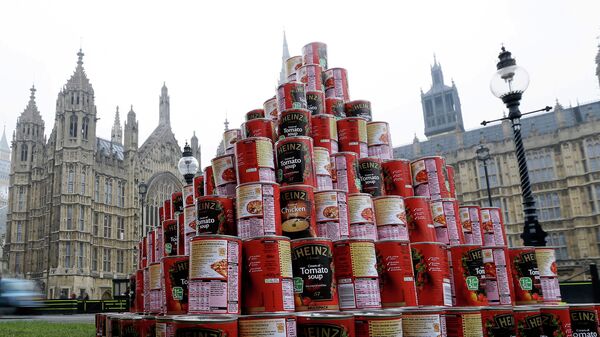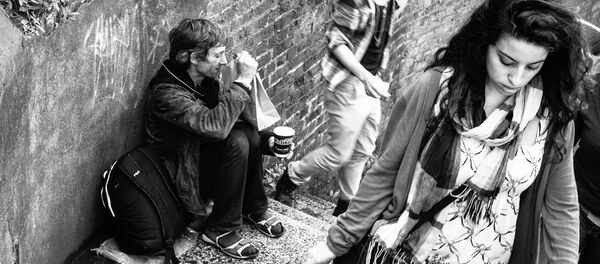The data compiled by a team of journalists and published by a coalition of churches, describes the government's benefit sanctions regime as 'punitive, inhumane and un-Christian'.
Benefit sanctions are imposed on people who don't, according to the Department for Work and Pensions, fulfill their obligations to actively find work.
If someone claiming Jobseeker's Allowance fails to show up for an appointment at the Jobcentre, their claim may be sanctioned for anything between four and 13 weeks. The allowance available for 18 to 24-year-olds is £57.35 a week and for those over 25 it's £75.40
Our research on sanctions cited: Almost half a million people have their benefts suspended http://t.co/sn43km2ksy pic.twitter.com/q8GfYyxLRw
— Joseph Rowntree Fdn. (@jrf_uk) February 23, 2015
Sanctions imposed on anyone voluntarily leaving a job or refusing to take one up, can leave a claimant without any money from 13 weeks to up to three years. In some cases, the Jobseeker's allowance is completely withheld if a claimant isn't able to give a 'good reason' for not taking up a job.
One claimant told Channel 4's Dispatches that his sanctions left him without food for a month, leaving him too exhausted and unwell to look for work; but when he told the Job Centre this he was sanctioned for a further three months for not looking for work properly.
In 2013, a leaked email from a member of staff at a Job Centre and seen by The Guardian revealed that Job Centres had been setting targets and league tables for sanctioning benefits.
Niall Cooper, director of Church Action on Poverty, said: "If you commit a crime, no criminal court in the UK is allowed to make you go hungry as a punishment. But if you're late for an appointment at the Job Centre, they can remove all your income and leave you unable to feed you or your family for weeks at a time.
"Most people in this country would be shocked if they knew that far from providing a safety net, the benefits sanctions policy is currently making thousands of people destitute. This policy must be reviewed urgently."
A report by a group of churches in the UK "concluded it is very hard to justify a system which impacts most harshly on the people who need help and support…It is incumbent on the Christian community to speak out against any system which treats people so unjustly".
Report on food banks warns that UK is stalked by hunger caused by low pay, inequality and harsh benefits sanctions: http://t.co/X7dHLyOsYQ
— Morecambe Foodbank (@BayFoodbank) December 8, 2014
The Archbishop of Wales, Dr Barry Morgan says the findings of the report are disturbing. "It exposes a system that is harsh in the extreme, penalising the most vulnerable of claimants by the withdrawal of benefits for weeks at a time.
"Most worryingly, it appears from Department for Work and Pensions guidance, quoted in the report, that deprivation and hunger are knowingly being used as a punishment for quite trivial breaches of benefit conditions."
The report is published by the Church of Scotland, the Church in Wales, the Methodist Church, the Baptist Union of Great Britain and the United Reformed Church and charity — Church Action on Poverty.
Churches call for urgent review of benefit sanctions as joint report reveals disturbing picture http://t.co/1AtLqRiYta #RethinkSanctions
— The Church in Wales (@ChurchinWales) March 2, 2015
It calls for the Department for Work and Pensions to review the 'punitive, inhuman and un-Christian' system and suspend sanctions on people suffering with mental illness or those with children.
According to research carried out by the Joseph Rowntree Foundation, poverty is predicted to rise to one in three children and nearly one in four adults by 2020.



